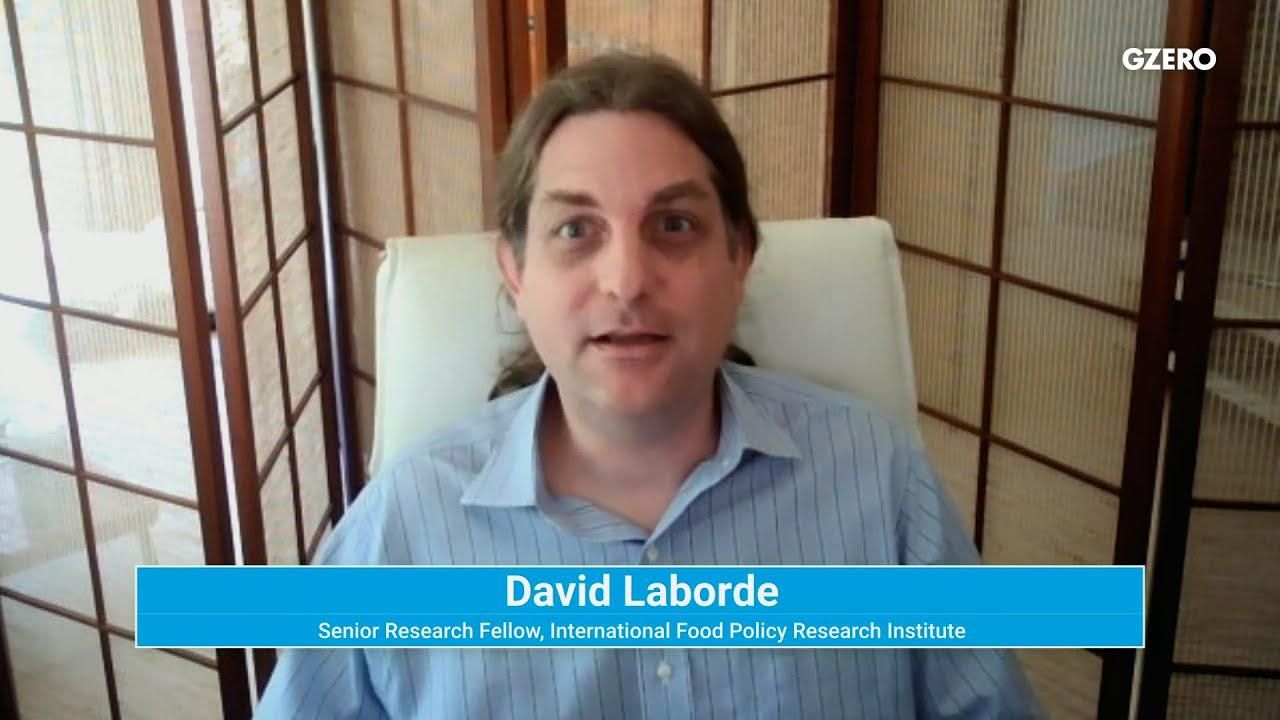popular
We've reached peak global food inflation, says IFPRI expert

We’ve Reached Peak Global Food Inflation, Says IFPRI Expert David Laborde | GZERO Media

Global food prices have been going through the roof over the past few months — but there's some good news on the horizon.
Weather permitting, the prices of key commodities like wheat are now almost back to their levels before Russia invaded Ukraine, David Laborde, a senior fellow at the International Food Policy Research Institute, said during a livestream discussion on the global food crisis hosted by GZERO Media in partnership with the Bill & Melinda Gates Foundation.
"Overall, I think really we have reached in global markets already the peak in terms of prices," he added.
At the country level, we can still expect a few more months of rising prices because there's always a lag between global markets and our local grocery store. The other problem is high energy prices, which drive up transportation costs, but unless there's a climate shock in a big producer Laborde believes "we have seen the worst of it."
In this Quick Take, Ian Bremmer addresses the killing of Alex Pretti at a protest in Minneapolis, calling it “a tipping point” in America’s increasingly volatile politics.
Who decides the boundaries for artificial intelligence, and how do governments ensure public trust? Speaking at the 2026 World Economic Forum in Davos, Arancha González Laya, Dean of the Paris School of International Affairs and former Foreign Minister of Spain, emphasized the importance of clear regulations to maintain trust in technology.
Will AI change the balance of power in the world? At the 2026 World Economic Forum in Davos, Ian Bremmer addresses how artificial intelligence could redefine global politics, human behavior, and societal stability.
Ian Bremmer sits down with Finland’s President Alexander Stubb and the IMF’s Kristalina Georgieva on the sidelines of the World Economic Forum to discuss President Trump’s Greenland threats, the state of the global economy, and the future of the transatlantic relationship.